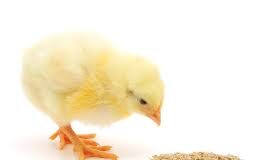Wouter Van Der Veken, Huvepharma.
The relationship between a healthy gut, the animal’s microbiota and optimum performance is undeniable. Especially in the early stages, the microbiota can heavily impact the final outcome of the production process. As such, it is important to manage and support the animal’s gut health as early as possible.
Probiotics – beneficial micro-organisms that are incorporated into the feed or drinking water with the goal of delivering a health benefit to the host – are a good example of an efficient management tool to do so.
It is no longer surprising that the preferred probiotic of choice should be a stable spore former with a proven and researched mode of action. Spore forming bacteria ensure product stability, as spores are robust and able to withstand environmental influences. These include, but are not limited to, high temperatures during feed processing, different pH values within the animal itself, as well as fluctuating storage conditions. Spore formers thus enhance ease of use, while ensuring product efficacy. A good example is B-Act which contains viable spores of Bacillus licheniformis (DSM 28710). This probiotic strain supports the birds’ gut microflora both directly and indirectly, as its mode of action is diverse.
First of all, the unique strain is part of the wider Bacillus genus and, as such, is a strong contender for nutrients and space relative to unwanted bacteria (competitive exclusion). Secondly, B. licheniformis DSM 28710 is capable of producing potent bio active substances aimed at pathogen control. Clostridium perfringens in particular, the key pathogen in production diseases such as necrotic enteritis (NE) and dysbacteriosis, can be actively and efficiently controlled with B-Act.
PROVEN EFFICACY
The described mode of action and effects have been extensively researched. A recent study showed that B. licheniformis DSM 28710 exerts a strong inhibitory effect on nine C. perfringens strains that were isolated from NE outbreaks on commercial farms. The importance of the early microbiota cannot be underestimated in mitigating such NE outbreaks, even though these outbreaks may occur at a later stage. Ensuring a healthy microbiota from the start, and maintaining it, decreases the opportunity for C. perfringens to take hold and proliferate in the next
stages of production. General gut health and the related microbiota further drive performance. Laying the proper groundwork as early as possible thus equals a good start for the animal, setting it up for a high-yielding production period.
EARLY APPLICATION
To support the idea of influencing the microbiota as early as possible, the first question that needs to be answered is: how can a probiotic be used in these early stages? To put this to the test, B-Act was applied in newly-hatched chicks by gel spraying, followed by faecal spore content analysis. The trial used 160 day-old Ross broilers that were sprayed with a coloured gel solution containing the probiotic. Faecal samples were collected at two time intervals (5 and 10 hours after spraying) and analysed for the presence of probiotic B. licheniformis DSM 28710. All faecal samples had a blue-green colour due to the colouring agent in the gel, indicating that the gel had been ingested properly. CFU results at both time intervals showed that the birds ingested considerable amounts of probiotic B-Act via the gel, thus confirming that the probiotic can be applied via gel spraying to supplement animals from an early age.
The study confirmed that probiotic supplementation is possible even before the first feed is introduced. As such, B-Act allows producers to support their birds as early as possible, setting them up for a successful production period, from start to finish.
The Bacillus licheniformis (DSM 28710) probiotic strain supports the birds’ gut microflora both directly and indirectly, as its mode of action is diverse.
To know more, please contact Huvepharma technical team
Huvepharma SEA (Pune) Pvt. Ltd.
42, ‘ Haridwar’, Road 2 A/B, Kalyani Nagar, Pune 411006
Customer Care Contact: +91 20 2665 4193
Email: salesindia@huvepharma.com Website: www.huvepharma.com
















